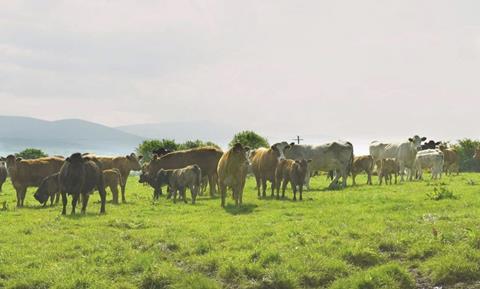Leeds University medical microbiologist, Professor Richard Lacey, has died aged 78. He first brought his claims about Bovine Spongiform Encephalopathy (BSE) to public attention in 1990, suggesting a link between the cattle disease and its human equivalent, Creutzfeldt-Jakob Disease (CJD).

The claim was then quickly sensationalised by the national media as “Mad Cow Disease”
A warning that tens of thousands and even millions of people might die did not, and have not, come to pass, but the claims and subsequent publicity cost the UK meat industry billions and changed the shape of the beef industry for decades. For a long period it virtually wiped out the UK export trade in beef.
Originally, in a Sunday Times interview, Lacey called for the slaughter of all BSE-infected herds and the article was sensationalised by the headline ‘Leading Food Scientist Calls for Slaughter of 6 Million Cows’. The Ministry of Agriculture Fisheries and Food (MAFF) became active in rejecting the claims, leading to the famous, or some would say infamous, TV news coverage of the then Secretary of State, John Gummer, feeding his daughter Cordelia a burger before a gathering of TV cameras and press media, while insisting that British beef was safe.
The government eventually changed its position and accepted that there may have been a link between BSE and CJD, although there has never been direct evidence that the two are linked. Experts have pointed to the fact that the BSE equivalent in sheep – Scrapie – has been around for thousands of years.
What is more, the forecast of hospital wards full of patients going mad and slowly dying never materialised. CJD has claimed a tiny amount of fatalities as it always has done and remains extremely rare in the human population. There were some vCJD patients affected at the time, when the extensive publicity about BSE was at its height, and this understandably caused great anxiety amongst the general public
The negative publicity, which was hyped by media at any given opportunity, lead to controls on slaughtering and a ban on British beef exports to many countries around the world. Much of the fall-out lasted for decades with foreign governments using the opportunity to restrict imports of top quality beef from the UK, often to the benefit of their own domestic production and, in so doing, got around rules on international trade, especially within the EU single market.
Managing Editor and Publisher of Meat Management magazine Graham Yandell said: “Even now media suggest that Lacey was proven right and was vindicated. I am yet to see real tangible evidence. Nevertheless, there were hard lessons to learn and farming and slaughtering practices changed as a result.
“I well remember obtaining oxtail during the ban as an ‘under the counter’ product, it was all very cloak and dagger. The tragedy was the long established businesses that failed, often for no good reason in my opinion. I would also say that MAFF did not cover itself in glory at the time.
“The then Meat & Livestock Commission (MLC) did very good work on behalf of the industry and we were lucky to have an organisation like that back in the 1990s. One wonders what would happen now in similar circumstances.
“In my view, Professor Richard Lacey was a blatant self-publicist and of course he had his fifteen minutes of national fame, but at a cost of billions. He and an irresponsible media were jointly responsible for killing off many long established and good businesses, plus the jobs they created. It also had a negative impact on UK tourism too. Headlines like ‘Four Million Will Die’ which I remember on the front page of the now defunct Today newspaper were not untypical. Of course that story was and remains utter rubbish.”
Prior to the BSE scandal, Lacey was also the microbiologist who first highlighted the potential for salmonella in eggs, which was subsequently claimed by the then MAFF minister, Edwina Curry, as meaning most eggs were affected by salmonella. Although not the case, it damaged egg sales significantly and the minister was sacked for her behaviour.
Yandell concluded: “I do not think the farming and meat industry will be shedding huge volumes of tears at the passing of the professor. It was a very sad chapter in the industry’s history, it also highlighted the inadequacy of government and the growing willingness of irresponsible journalists to never let the facts get in the way of a good story. The crisis actually paved the way for the launch of the Food Standards Agency and we all know how that mixed bag has worked out over the years.”
This story was originally published on a previous version of the Meat Management website and so there may be some missing images and formatting issues.















